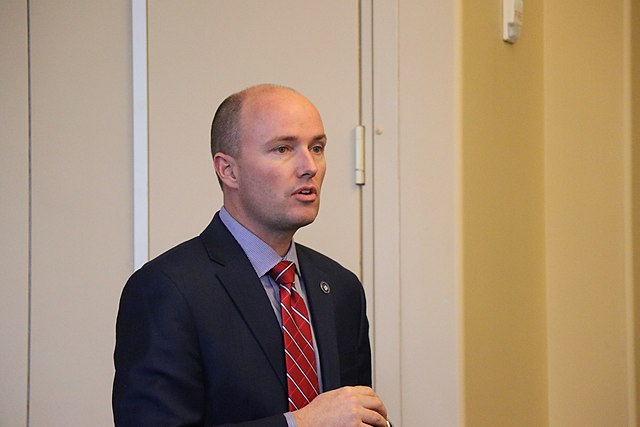The Republican governor of Utah, Spencer Cox, got heat from his right and left flanks for his 2023 Pride Month declaration even though it made zero mention of LGBTQ people or groups. Cox’s 2022 and 2021 proclamations referred to LGBTQ+ Utahns multiple times.
“Not including the letters and words that identify the Pride Community — LGBTQIA+ — is an irresponsible … act of erasure,” the Utah Pride Center tweeted. “We believe Gov. Cox can do better.”
Conservatives meanwhile accused Cox of pandering to the left and Democrats by celebrating “sin” as a RINO. Perhaps the most sensationalistic reactions were calls for a primary challenge from the right.
Cox has an ambivalent history with regards to LGBTQ rights and policies during his governorship. He got widespread attention and praise when he vetoed a ban on trans athletes in school sports and was lionized in national media as after he wept on stage at a rally following the Pulse nightclub shooting in Orlando. But more recently, he signed the year’s first statewide ban on gender-affirming health care for trans minors.
It has been a polarizing Pride Month to say the least, and Cox certainly has his 2024 campaign for reelection in mind, and he is walking on a razor-thin tightrope. But the issue goes beyond politicians. The clash between states like Utah and now Florida and states like New York (which always has a robust Pride Month itinerary) is well-documented when it comes to how openly the LGBTQ community is acknowledged. But between the Target, Bud Light, branches of the military, schools, Sesame Street, pro sports, and several more areas, it seems like every area of culture has a new controversy sprouting up over Pride.
It may be hard to fully understand the charged discourse around Pride Month in 2023 if you live in a place like New York City and hear about everything else from the media. But for Utahns, the consequences of anti-pride rhetoric are a reality.












